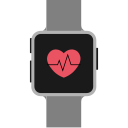Save up to 30% on selected lines in our Black Friday offers. Ends in 0 days 0 hours 0 minutes 0 seconds Start Today
Mysimba
(Naltrexone & Bupropion)
Part of our weight loss treatment plan
Mysimba is a prescription-only weight-loss medication containing naltrexone and bupropion. You take 1-2 tablets once or twice a day up to a maximum of 4 tablets per day. Bupropion helps to reduce your appetite so that you do not feel as hungry and are satisfied with less food. Naltrexone is thought to curb your food cravings which reduces your desire to eat.

Mysimba is approved to help you lose weight in conjunction with an active lifestyle and a calorie-controlled balanced diet.

Mysimba should be taken alongside a calorie-controlled diet and exercise to help you lose weight. Exercise and a balanced diet will help you to maintain a healthy weight even when you stop taking your medication.
How Does Mysimba Work?
Mysimba has two active ingredients that, although not fully understood, are thought to be complementary in the way they work. Bupropion helps to reduce your appetite so that you do not feel as hungry and are satisfied with less food. Naltrexone is thought to curb your food cravings which reduces your desire to eat. The combination of these two actions works together to help you lose weight.
Although Mysimba is shown to be effective as a weight-loss treatment and was approved for use in Europe in 2015, it does not have a license for this use by the NHS in the UK so is only available on a private prescription.
How much does Mysimba cost?

Packs and prices
-
Starter pack £109 £98
112 prolonged-release tablets
5 weeks of treatment -
Continuation pack £109 £98
112 prolonged-release tablets
4 weeks of treatment
Is Mysimba suitable for me?
Mysimba can only be used as a weight-loss treatment if you have previously tried and failed to lose weight through diet and exercise alone.
Get Started How long does Mysimba last?How do I take Mysimba?
Your medicine should be taken as advised by us. When you take Mysimba you will gradually increase your dose over a four-week period until you reach what is called the maintenance dose. This is the dose at which you will continue to take Mysimba. You increase your dose as follows:
- Week 1 - ONE tablet to be taken in the MORNING
- Week 2 - ONE tablet to be taken in the MORNING & ONE tablet to be taken in the EVENING
- Week 3 - TWO tablets to be taken in the MORNING & ONE to be taken in the EVENING
- Week 4 - TWO tablets to be taken in the MORNING & TWO tablets to be taken in the EVENING
- Maintenance Dose – Same as week 4
You should swallow your tablets whole with plenty of water, with or immediately after food. They are a prolonged-release formulation, so you must never crush, chew or cut the tablets as this will affect the rate at which the active ingredients are released into your body.
The maximum recommended dosage of Mysimba is two tablets twice a day. If you do not lose at least 5% of your body weight after 16 weeks of treatment, your doctor will evaluate if you should continue taking Mysimba.
Always take this medication exactly as your doctor tells you to. You can find full details in the patient information leaflet. Additional information and guidance on Mysimba can also be found at www.mysimba.co.uk.
Mysimba is a prolonged release tablet which is blue in colour. The tablets are round and have NB-890 embossed on one side.
How long does a pack of Mysimba last?What information do we need to know about you?
Mysimba cannot be used if:
- you are pregnant, trying to become pregnant or are breastfeeding
- you are under 18 or over 75 years old
- you have any allergies to any of the ingredients in Mysimba or are taking any medicines that contain any of the active ingredients in Mysimba
- you have severe liver disease, end-stage renal disease, uncontrolled hypertension, history of seizures or fits, CNS tumour, opioid dependence, acute alcohol, opioid or benzodiazepine withdrawal, history of bipolar disorder, bulimia or anorexia nervosa
- you are taking monoamine oxidase inhibitors (MOI) – you must have at least a 14-day gap from stopping your MOI before starting Mysimba
- you are taking any opiates or opiate-containing medicines (i.e. morphine, codeine, cough mixtures containing dextromethorphan, methadone) – you must have at least a 7-10-day gap before starting Mysimba
Mysimba should be used in caution if:
- you are aged 65-75 years
- you have liver or kidney problems
- you have depression, suicidal thoughts or any other mental health condition
- you have diabetes, high blood pressure or heart disease, have had a serious head injury, regularly drink alcohol or use sedatives, you have any drug addictions
- you are taking any medicine that may increase the risk of fits or seizures
You must tell us about all the medications that you are taking including those that are prescribed, bought over the counter and also herbal remedies and supplements as they may interact with Mysimba and you will need to be monitored for side effects
Get StartedHow much does Mysimba cost?
Mysimba costs around £1.25 per tablet including delivery and prescription and comes in packs of 112 tablets.
See Mysimba cost and pack sizeMysimba Unboxing
Interested in finding out how your Mysimba weight loss treatment travels and arrives to you? Check out this video to view our treatment unboxing to know what to expect once your treatment is approved and shipped.
Watch our Mysimba unboxing videoWhat are the possible side effects of taking Mysimba?
As with all medication, Mysimba can be associated with unwanted side effects. Although generally mild some of these can be more severe which may result in the treatment being discontinued.
Very common side effects (may affect more than 1 in 10 people):
- Insomnia
- Anxiety & agitation
- Headache
- Feeling restless
- Abdominal pain & constipation
- Nausea & vomiting
- Joint & muscular pain
Common side effects (may affect up to 1 in 10 people):
- Hypersensitivity reactions (e.g. rash, itch)
- Reduction in lymphocyte cells count
- Depression, irritability & increased energy
- Dizziness, vertigo & tinnitus
- Tremor
- Headache
- Tiredness, difficulty concentrating & lack of energy
- Watery eyes
- Palpitations, hot flushes & excessive sweating
- Chest pain
- Decreased appetite, diarrhoea
- Taste disturbances, dry mouth & toothache
- Delayed ejaculation
- Fever & chills
- Hair loss
Uncommon side effects (may affect up to 1 in 100 people):
- Cold sores
- Athlete’s foot
- Swollen glands in the neck, armpit or groin
- Excessive loss of body water dehydration
- Loss of appetite
- Increased appetite & weight gain
- Abnormal dreams, nightmares
- Flushing
- Feeling nervous, feeling spacey, tension, agitation, mood swings, hallucinations, confusion, severe suspiciousness (paranoia), disorientation
- Loss of sexual desire
- Tremor of the head or a limb which increases when trying to perform a particular function
- Balance disorder
- Loss of memory, mental impairment
- Almost fainting
- Motion sickness
- Ear pain, ear discomfort
- Visual disturbances, blurred vision, eye irritation, pain or swelling, increased sensitivity to light
- Nasal discomfort, congestion, runny nose, sneezing, sinus disorder
- Sore throat, increase in mucus that is coughed up, difficulty in breathing, disorder of the voice, cough, yawning
- Fluctuating or increased blood pressure
- Pain in the lower part of the abdomen
- Burping
- Swelling of the lips
- Passage of fresh blood through the anus usually in or with stool
- Hernia
- Passing wind (flatulence), haemorrhoids, ulcer, cavities
- Inflammation of the gallbladder
- A problem with the spine where supporting disc between two bones (vertebra) bulges out
- Jaw & groin pain
- A disorder characterised by a sudden compelling urge to urinate, abnormally frequent urination, painful urination
- Irregular menstrual cycle, vaginal bleeding, dryness of the female vulva & vagina
- Difficulty in getting or keeping an erection
- Feeling abnormal or weakness
- Thirst, feeling hot
- Coldness of extremities (hands, feet)
- Increased creatinine levels in the blood (indicating loss of kidney function)
- Increased liver enzymes and bilirubin levels, liver disorders, hepatitis
- Decreased haematocrit (indicating loss of red blood cell volume)
- Acne, oily skin
There are further rare and very rare side effects that occasionally people can experience when taking Mysimba, for complete details about all side effects always read the Patient Information Leaflet.
References
- https://www.medicines.org.uk/emc/files/pil.2684.pdf
- https://www.medicines.org.uk/emc/files/pil.2684.pdf
- Side effect list compiled from data taken from www.medicines.org.uk – Please visit their website for a complete and comprehensive list. Medicines.org is a stand-alone entity and is in no way associated with this site.
Mysimba blog posts
Meet our expert team
PrivateDoc is happy to introduce you to some of our leading UK licensed clinicians.







